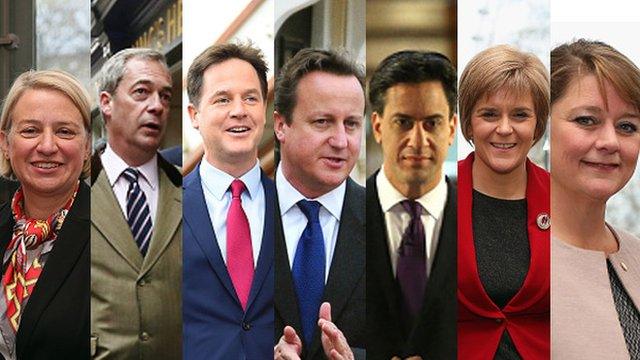TV election debates: DUP to seek judicial review of BBC's decision
- Published
DUP leader Peter Robinson had said his party's lawyers would be in touch with the broadcasters
The Democratic Unionist Party (DUP) intends to seek a judicial review of the BBC's decision to exclude the party from the televised general election debates.
The party said the BBC's decision was unlawful and irrational.
It said the decision was in breach of the corporation's duties of impartiality.
Last month, BBC director general Tony Hall rejected the DUP's request to be included in the TV debates.
In a statement, the DUP said: "If a regional party with three MPs [Plaid Cymru] is in the televised general election debates then another regional party with eight MPs and more votes should be there too.
"This election is unlike any election in over a generation.
"Many commentators predict the DUP will hold the balance of power in the next parliament. Since we will play a central role after the election then it is right that we play a full role in the pre-election debates."
The BBC said it was aware of the letter from the DUP, but is not commenting on it.
It is understood the DUP plans to meet the BBC early next week to discuss the matter further.
In the legal letter to the BBC, the DUP says it recognises it would be "proper" to include the Social Democratic and Labour Party (SDLP) in the debates.
The DUP argues it has no objection "in principle" to the SDLP, UUP, Sinn Féin and Alliance taking part in the debates.
But the DUP argue there are "cogent reasons" for not including all of them.
It claims "there is no purpose to be served" by including Sinn Féin, because the party does not take up its seats at Westminster.
It also says that the Alliance and UUP could be excluded because they have one and no seats respectively, and other parties in the same position have been excluded.
But the DUP add: "Nonetheless, given that the SDLP has three seats, the DUP would recognise that it would be proper to include them in a combined debate as well.
"This would increase the overall number of participants from seven to nine: a marginal increase."
'Obligations'
The broadcasters plans feature two debates with seven parties, including UKIP, SNP, Plaid Cymru and the Greens.
The DUP had written to the BBC and ITV asking for an explanation as to why the party had not been invited to take part in the live televised election debates.
In his written reply to the DUP, Lord Hall is understood to have said the decision not to include them complied with the BBC's obligations of impartiality.
In the original joint statement from BBC and ITV to the Northern Ireland political parties, Lord Hall said they would "not be fulfilling our obligations of impartiality to the voters of Northern Ireland" if they were to invite one of the parties but not all the others, "which also have substantial support in Northern Ireland".
The BBC and ITV are currently planning to hold two debates involving the Conservatives, Labour, Liberal Democrats, UKIP, Plaid Cymru, the SNP and the Greens.
A third debate - hosted by Sky and Channel 4 - would feature a head-to-head between Mr Cameron and Labour leader Ed Miliband.
- Published12 February 2015
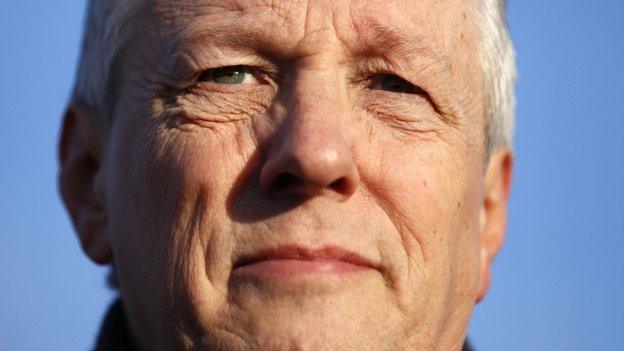
- Published28 January 2015
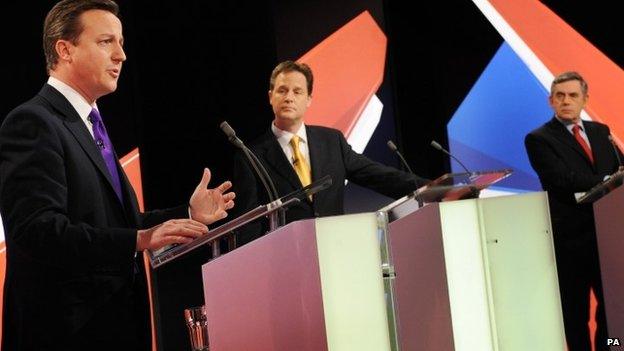
- Published23 January 2015
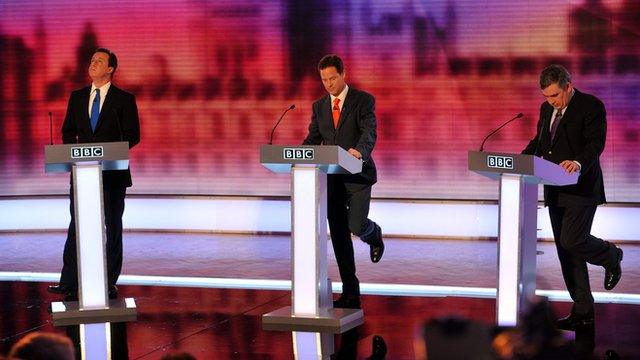
- Published27 January 2015
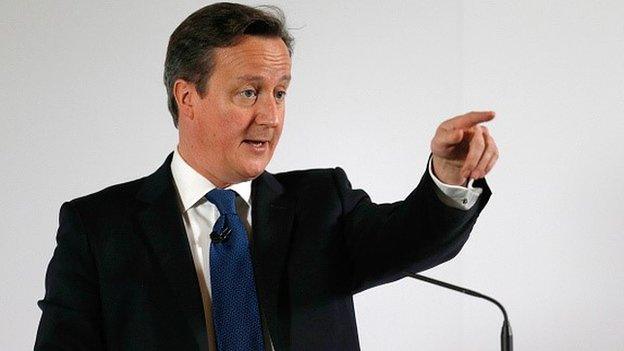
- Published23 January 2015
